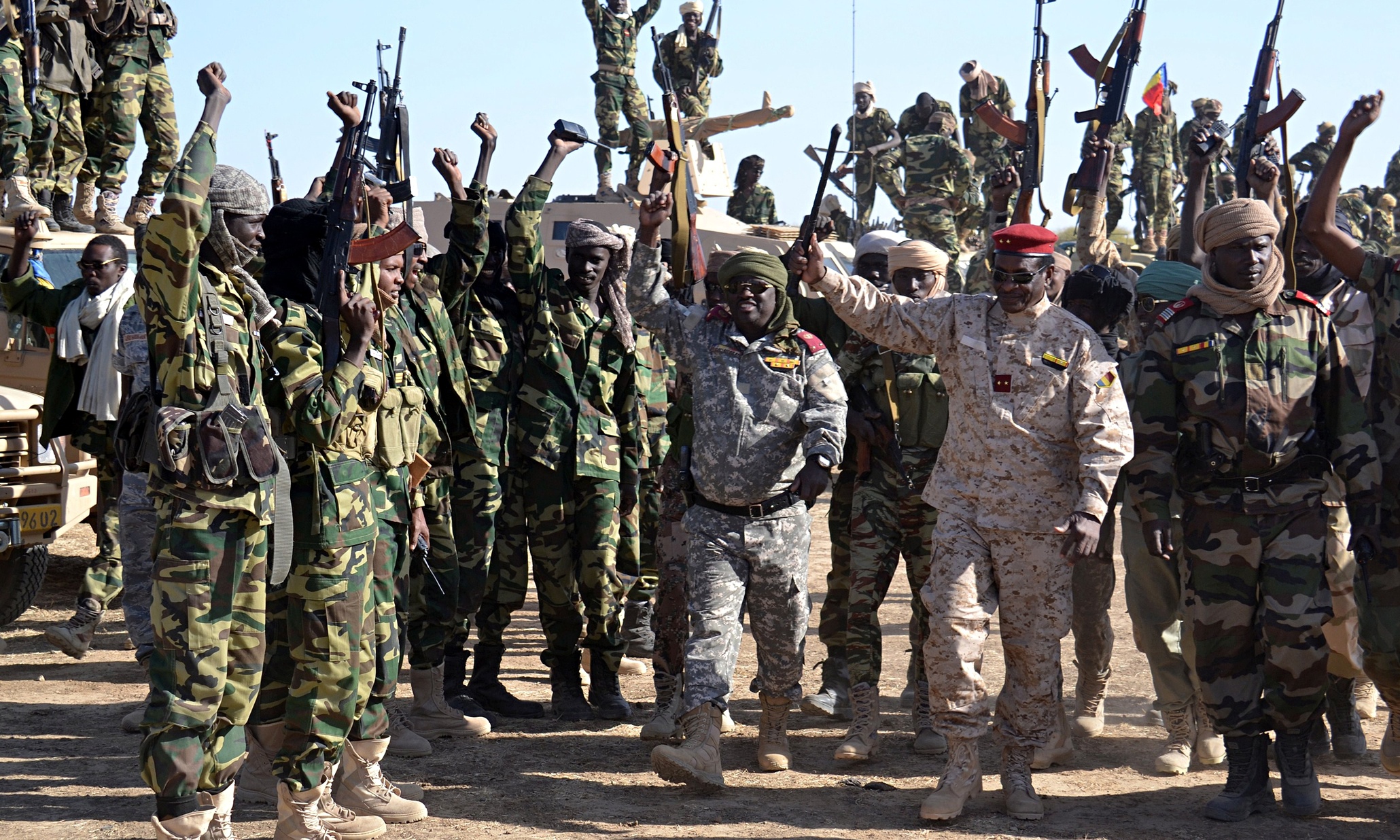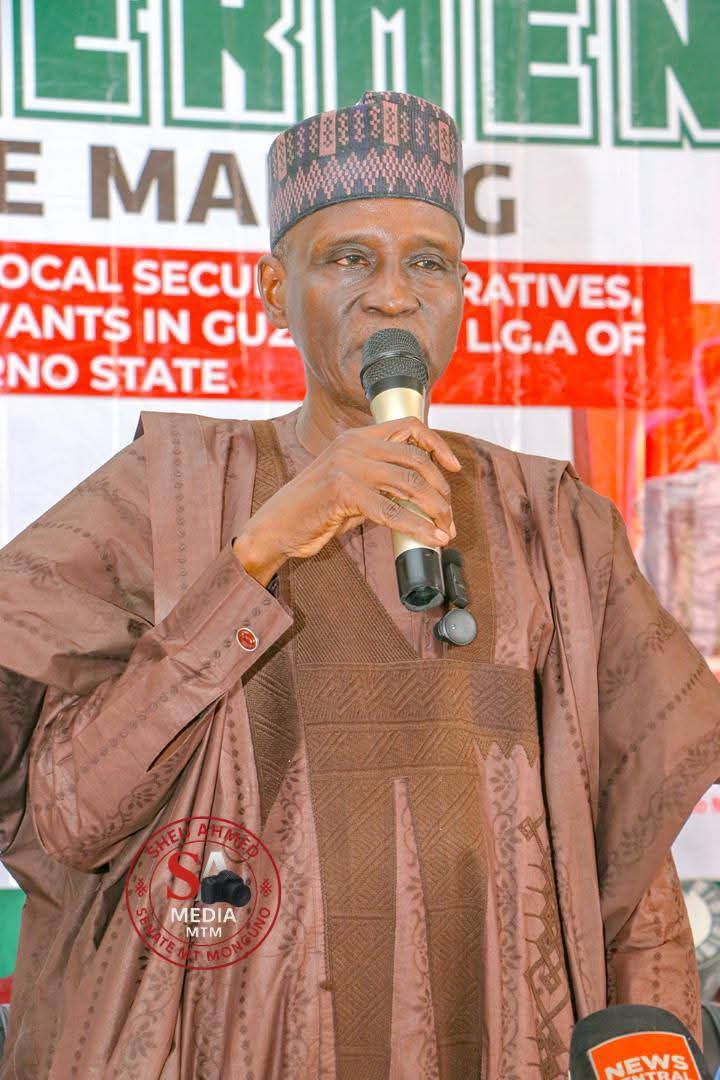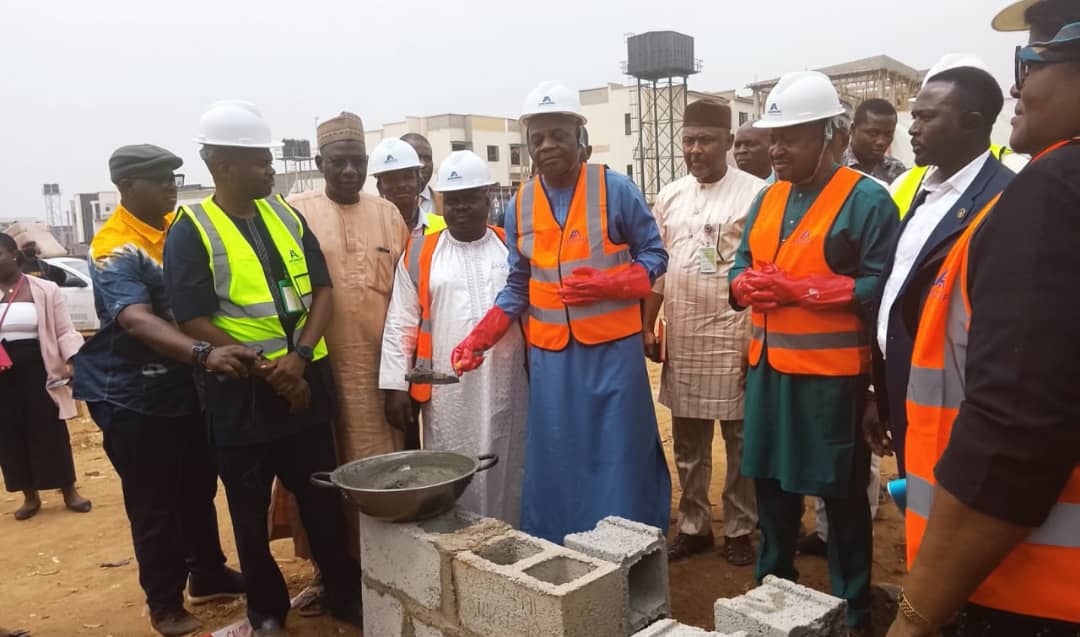News
Over 50 killed as Boko Haram/ ISWAP factions clash.

By: Special Correspondent
A deadly clash between the factions of Boko Haram the Jamā’at Ahl as-Sunna lid-Da‘wa wa’l-Jihād (JAS) and the Islamic State of West Africa Province (ISWAP) has resulted in the reported death of more than 50 fighters at Toumbun Gini, an island community in Abadam Local Government Area of Borno State.
Security sources told Zagazola Makama that the clash occurred on Sunday afternoon around 3 pm, following an attempted offensive by ISWAP fighters.
According to the source, ISWAP mobilised fighters using 10 high-powered watercraft and launched an attack aimed at reclaiming the island, believed to have recently fallen under the control of the rival JAS faction.
However, intelligence reportedly reached JAS leadership ahead of the assault, enabling them to set up a counter-ambush.
At exactly 1500 hours, ISWAP boats landed and what was planned as a surprise offensive quickly turned into a deadly trap. The first shots were decisive. JAS fighters overpowered them within minutes. ISWAP was routed,” the source said.
The source said over 50 ISWAP fighters were killed during the ambush, with seven of their boats seized. The remaining three vessels escaped with casualties. Video clips appearing to show the aftermath of the clash surfaced online on Sunday.
Zagazola described the clash as Day 5 of intensified rivalry between the two insurgent factions, which have been fighting over territorial dominance and control of resources in the Lake Chad islands.
The continued push by JAS against ISWAP could force surviving ISWAP fighters deeper into mainland communities bordering Kukawa, Monguno and Marte LGAs, increasing security risks for civilians and security personnel.
The rivalry has however, weakened both factions, reducing their ability to launch coordinated large-scale attacks. However, this fragmentation also poses a different challenge: smaller, unpredictable cells that are harder to track.
What is happening on Lake Chad today is a conflict within a conflict and Nigerian troops remain in the middle of the battlefield. The fighting could be leveraged strategically by intensifying pressure on both groups simultaneously.
“This is the best time for the Nigerian military to tighten the corridor and deny both factions space to regroup,”said Rivalry.
Clashes between rival jihadist factions Boko Haram and ISWAP have escalated tenssion in the Lake Chad region.
Our correspondent reports that, the Jama’atu Ahlis Sunna Lidda’awati wal-Jihad (JAS) and the Islamic State West Africa Province (ISWAP) have intensified their rivalry across strategic island strongholds and riverine settlement routes in Abadam and Kukawa Local Government Areas of Borno State.
Between 5 and 8 November 2025, Boko Haram’s Jama’atu Ahlis Sunna Lidda’awati wal-Jihad (JAS) launched a fierce coordinated assault on its rival faction, Islamic State West Africa Province (ISWAP), across a stretch of islands identified as Sahel 1, Dogon Chuku, Mangari, and linked riverine basins spanning Tumbun Gini – Tumbun Dalo – Tumbun Shanu – Mangari – Dumba in Abadam and Kukawa local government areas of Borno State.
The fighting was intense. The objective was clear. JAS wants to erase ISWAP. Sources revealed that JAS fighters, led by commanders Hassan Buduma and Mohd Hassan, mobilised multiple watercraft loaded with fighters and heavy weapons, moving in waves from Tumbun Gini through the upper river basin to Tumbun Dalo, Tumbun Shanu, Mangari, Dumba and surrounding islands, a chain of sandy enclaves where humanitarian presence is almost non-existent.
In a scene described as “an amphibious assault in insurgent style,” JAS fighters attacked ISWAP from the water, surprising them at dawn. “This is not a misunderstanding, this is a takeover,”said one intelligence source familiar with the region.
However, after days of sustained fighting,
ISWAP fighters were forced to abandon their river camps scrambling for their lives.
The number of casualties remains unknown, but ISR reportedly picked up heat signatures of several bodies floating and others buried in shallow sand pits.
Multiple sources also confirmed that JAS deployed several motorized watercraft in a multi-axis assault, overrunning ISWAP clusters and pushing surviving fighters off the island perimeter into mainland hideouts around Ali Jillimari, Metele, Kangarwa, and Gudumbali in North of Borno.
While both groups share an extremist ideology, the battle has nothing to do with religion. It is about power. Control of the Lake Chad islands means control of millions of naira collected through extortion of fishermen and traders, they will also take control of the Arms and fuel smuggling corridors through Niger, Chad and Cameroon. They will also have mobility advantage where the water channels provide a perfect cover from air surveillance.
ISWAP had dominated these islands since 2021, after the death of Boko Haram leader Abubakar Shekau. But water levels have receded this season, opening new land routes and exposing old fishing settlements.
At the core of this escalation is not ideology — but dominance. JAS, according to intelligence intercepts, has vowed to “totally eliminate ISWAP presence in the Lake Chad islands”, and seize ISWAP’s lucrative supply corridors interfacing Niger, Chad and Cameroon.
JAS reportedly plans to push further south toward ISWAP headquarters within Marte and Ngala LGAs, a strategic move that, if successful, would reverse ISWAP’s dominance for the first time since 2021. Once ISWAP regroups on the mainland, it will retaliate violently to reclaim the islands. The group has never allowed a territorial defeat to stand.
Zagazola report that the clashes represent a transition from sporadic skirmishes to a full territorial campaign. More ambushes, roadside bombs and abductions along access routes linking Metele, Kangarwa and the Maiduguri–Damasak MSR, should be anticipated.
The emerging trend suggests that both factions will now lunched retaliatory raids on each other’s strongholds, attack supply lines, including river transport. Communities in Kukawa and Abadam especially fishermen, transport boat operators, and seasonal farmers will bear the immediate consequences.
The Lake Chad Basin has always held strategic value a place where borders blur and armies struggle to manoeuvre. But this new insurgent rivalry marks a turning point. For the first time in years, Boko Haram and ISWAP are not just fighting the state. They are fighting over who gets to rule the shadows.
And somewhere in the middle caught between gunboats, ideology and hunger are the civilians of the Lake Chad islands, whose lives continue to be shaped by a war they did not choose and cannot escape.
Zagazola Makama is a Counter Insurgency Expert and Security Analyst in the Lake Chad Region
News
Audi: Trajectory of Success and Changing the Narrative

From a plethora of achievements and milestones—despite daunting challenges and shortcomings—the foresight, vision, and focused leadership of the present administration have transformed and repositioned the Service like never before in its history. In spite of limited funding and other grey areas yet to be addressed, the leadership has successfully turned around the narrative through deliberate rebranding efforts since assuming office.
Staff welfare remains paramount to the Commandant-General, who has consistently prioritized boosting esprit de corps and high personnel morale through the prompt payment of salaries, allowances, and other official entitlements as and when due. The leadership has also entrenched core values of integrity, intelligence-based security response systems, and professionalism across all operations. These measures have significantly reduced the activities of criminals, vandals, kidnappers, herdsmen, and illegal miners across the country.
In a press release signed by Mahmud Bello, Director of Media and Stakeholders Engagement of the Citizen Watch Advocacy Initiative (CWAI) in Kaduna State, the organization stated that the paramilitary agency has demonstrated genuine commitment to the interest of Nigerians through its open-door policy and robust engagement with its various publics. This approach has greatly reduced threats and disaster incidences nationwide through professional intelligence gathering, investigation, information sharing, manpower development, and strong collaboration with sister agencies—leading to remarkable improvement in disaster management as first responders.
Accordingly, transparency, accountability, and good governance have remained at the forefront of the present administration’s transformational philosophy. This has resulted in far-reaching reforms, including the regulation of private security companies, the introduction of Mining Marshals to secure strategic mining sites nationwide, containment of vandalism of critical national assets, reduction of oil theft in the Niger Delta region, and the assumption of VIP protocol protection responsibilities. These achievements surpass those of previous administrations and mark a significant milestone in the Service’s evolution.
CWAI authoritatively confirmed that the present management has introduced comprehensive institutional reforms that have repositioned the Service for greater productivity, efficiency, and effectiveness in delivering its mandate of safeguarding lives, property, and critical national assets—thereby reducing criminal activities and enhancing national security.
The Commandant-General, Professor Abubakar Ahmad Audi, reiterated that the reforms introduced align with his vision to upgrade the operational machinery of the Corps. He noted that the reorganization and revitalization of the training department are aimed at sharpening the skills and competencies of personnel to effectively address contemporary security challenges posed by hoodlums, bandits, kidnappers, and insurgents.
The establishment of the Mining Marshals and the Special Female Squad (SFS) are novel initiatives and the first of their kind in the history of the Corps. In response to the Federal Government’s Safe Schools Initiative, the NSCDC conducted audits and surveys of schools nationwide and developed a framework for proactive security measures to address the persistent attacks on educational institutions. These squads, like the Mining Marshals, are strengthening partnerships with local communities and stakeholders while prioritizing surveillance and monitoring to curb violent attacks and criminal activities.
The statement further emphasized that the Directorate of Legal Services has been reinvigorated and strengthened with enhanced prosecutorial competence, improving law enforcement and accountability. Similarly, the Anti-Vandal Unit has undergone major reforms and has been strategically deployed across the South-South geopolitical zone to curb pipeline vandalism, crude oil theft, and destruction of critical national assets. Over 2,500 suspects have been arrested since the beginning of the year for offences ranging from vandalism and attacks on national infrastructure to cattle rustling, banditry, attacks on farmers and farmlands, and illegal mining.
The Commandant-General attributed these successes to effective inter-agency collaboration, synergy, and partnerships, calling for comprehensive manpower development within the national security architecture.
Sports have also received significant attention under the present leadership, with officers and men of the NSCDC winning numerous laurels and trophies in various sporting engagements. All personnel, regardless of rank, have been provided with insurance cover against accidents, disability, or death in the course of duty. The Commandant-General views sports as a unifying platform that promotes wellness, camaraderie, information sharing, and mutual trust among paramilitary agencies.
CWAI further noted that the crackdown on illegal mining activities has saved the economy substantial revenue losses, while the destruction of over 450 illegal refineries has reduced oil theft. Additionally, the arrest of suspects and recovery of critical assets and railway materials valued at over ₦5 billion represent major milestones of the Service.
The organization therefore endorsed the change mantra of the Audi-led management and expressed confidence in the present leadership, noting that Nigerians are proud of its achievements despite prevailing challenges.
CWAI urged personnel to remain good ambassadors of the Corps—incorruptible and aligned with international best security practices wherever they serve. Nigerians were also encouraged to support the management in strengthening efforts against vandals and criminals nationwide.
The organization appealed to corporate bodies and public-spirited individuals to support President Bola Ahmed Tinubu’s Renewed Hope Agenda, particularly efforts to modernize the NSCDC through funding, partnerships, manpower development, capacity building, and the acquisition of modern security equipment.
Finally, CWAI emphasised the need for increased national budgetary allocation to the NSCDC in view of its critical role in the nation’s security architecture, including its added responsibility of VIP protocol protection. It also called for the entrenchment of a standard training curriculum to enhance career progression, effective supervision, and transparent regulation of Private Guard Companies across the country.
News
Senator Monguno Launches ₦250 Million Mega Empowerment Programme for 2,500 Constituents

The Senator representing Borno North Senatorial District, Chief Whip of the Senate and Vice Chairman of the Senate Committee on Appropriation, Distinguished Senator Mohammed Tahir Monguno, has unveiled a ₦250 million Mega Empowerment Programme designed to strengthen grassroots economic development through skills acquisition and financial support. The initiative, targeting 2,500 constituents, commenced with the disbursement of ₦125 million to 1,250 beneficiaries in the first batch, each receiving ₦100,000 as start-up capital. The second batch of 1,250 beneficiaries is scheduled to receive the remaining ₦125 million next week, ensuring equitable coverage across the constituency. Ahead of the disbursement, participants underwent a four-day intensive training in Tie and Dye, Cake Making, Tailoring, Entrepreneurship, Soap Making, Groundnut Cake Production, and Hairdressing. The programme deliberately focused on youths and women, equipping them with practical skills to foster self-reliance, productivity, and sustainable livelihoods. Prominent stakeholders, including Alhaji Kallah Maina Monguno, Hon. Mohammed (M-Gas), and APC Local Government Chairmen, commended Senator Monguno’s people-focused leadership. They described the initiative as timely and impactful, urging beneficiaries to apply the support responsibly as a strategic investment in human capital development. Speaking on behalf of the organisers, Mr. Suleiman reaffirmed their commitment to transparency and sustainability, advising participants to remain disciplined and dedicated to their chosen trades. The event drew wide attendance from political leaders, religious figures, and youth and women group representatives, underscoring its significance. Senator Monguno emphasized that the programme is not a one-off intervention but a long-term strategy to strengthen skills acquisition, promote entrepreneurship, and create sustainable sources of livelihood. He noted that the initiative complements Governor Babagana Zulum’s human capital development agenda and aligns with the broader vision of reducing unemployment and fostering inclusive economic growth in Borno State.
News
TETFund Begins Construction of Abuja Leadership Centre

The Tertiary Education Trust Fund (TETFund) has initiated the construction of the Abuja Leadership Centre of Excellence in Public Governance at Yakubu Gowon University, formerly known as the University of Abuja.
The Executive Secretary of TETFund, Sonny Echono, officially launched the project alongside the Vice-Chancellor of the University of Abuja, Professor Hakeem Babatunde Fawehinmi, and the Director of the Centre, Professor Philip Dahida, during a ceremony held on Tuesday in Jahi, Abuja.
During the event, Echono emphasized the goal of making the Abuja Leadership Centre “a stopping point for every leader visiting the country.” He described leadership as a crucial element of national development, noting that the success or failure of nations often hinges on the quality of leadership they cultivate.
He highlighted that effective leadership relies on a collective effort to utilize intellectual, human, and material resources, which, when efficiently coordinated, can drive national development aspirations.
Echono disclosed that TETFund plans to commission approximately 467 projects across tertiary institutions nationwide between now and October. “It is my prayer and hope that this centre will become a stopping point for every leader visiting our country. Its location in the nation’s capital is not accidental,” he remarked.
The TETFund boss expressed optimism that the Abuja Leadership Centre would develop into a world-class facility capable of nurturing leaders across various sectors of the economy and hosting globally recognized speeches, conventions, and declarations.
The TETFund Executive Secretary urged the contractors responsible for the project to meet expectations, emphasizing that the goal is to create a facility of international standard. He assured that TETFund would provide funding not only for construction but also for high-quality furniture and equipment.
According to him, the Centre is envisioned as more than just a conference hall or auditorium; it aims to be a top-tier leadership facility where visiting heads of state and their delegations will feel at home, comparable to similar facilities worldwide.
Echono praised the leadership of the University of Abuja and the Centre for the stability and direction they have brought to the institution, reaffirming TETFund’s commitment to collaborating in order to realize the vision of the university’s founders. He emphasized that, by its name and mandate, the university must continue to promote national unity, integration, and excellence, particularly in leadership and governance.
Regarding the commissioning of projects, he noted that it would not be feasible for the agency to inaugurate all projects directly, but at least 50 iconic projects would be selected across the states, with a minimum of two to three in each state.
Earlier, in his remarks, Vice-Chancellor Professor Fawehinmi stated that the groundbreaking ceremony marks a new phase in the university’s collaboration with TETFund. He noted that the Abuja Leadership Centre would function as a center of excellence for public governance and leadership, serving as a national hub for training future leaders who will significantly impact policy formulation and national development.
The Vice-Chancellor commended Echono’s leadership at TETFund, pointing out that under his guidance, the agency has transformed tertiary education not only through physical infrastructure but also in staff development, libraries, and other essential facilities.
He expressed confidence that TETFund would ensure the timely completion and proper furnishing of the Abuja Leadership Centre so that it can be fully utilized to achieve its objectives. Fawehinmi assured that the university would maximize the use of the facility, describing the project as a historic intervention that would be remembered for years to come.
“Today, we further strengthen our long-standing partnership, and we are delighted to announce that this Abuja Leadership Centre will be a center of excellence for public governance and leadership. It will serve as a national hub for training future leaders who will be involved in policy decisions for the development of their country. We extend our gratitude to you and your team, as we recognize the importance of nurturing our relationship into the future. Executive Secretary, you have done exceptionally well over the years. You have led one of the most impactful intervention agencies for tertiary education in the country, and we are very proud of your achievements,” he added.
The Director of the Abuja Leadership Centre, Professor Dahida, praised TETFund for commencing the construction of its permanent site, stating that the development signifies the realization of a vision rooted in the belief that leadership is the most vital resource for good governance, institutional excellence, and national development.
Dahida revealed that the Centre was established to serve as a hub for thought leadership, capacity development, policy dialogue, and ethical reorientation, not only for the University of Abuja but for Nigeria and the wider African region. Adding that the Centre is also designed to bridge the gap between theory and practice, academia and policy, and leadership ideals with real-world application.
He charged the contractor to execute the project strictly in line with the approved specifications, timelines, and agreed standards. Stressing that the facility must reflect world-class quality, professionalism, and durability, while public funds entrusted to this project must translate into tangible value, accountability, and excellence.
“Today marks far more than the commencement of a construction project. It signifies the physical birth of a vision, one rooted in the conviction that leadership is the most critical resource for good governance, institutional excellence, and national development.
“The Abuja Leadership Centre, TETFund Centre of excellence, was established to serve as a hub for thought leadership, capacity development, policy dialogue, and ethical reorientation, not only for the University of Abuja but for Nigeria and the wider African region.
“At a time when nations are confronted with complex governance challenges, evolving public expectations, and rapid socio-economic change, the need for principled, competent, and forward-looking leaders has never been more urgent.
“I wish to express our deepest and most sincere appreciation to the Tertiary Education Trust Fund (TETFund), and in particular to the Executive Secretary- Dr. Sunday Echono, for the approval and support that made this project possible.
“I also wish to specially commend the Vice-Chancellor of the University of Abuja, Prof. Hakeem Babatunde for his exemplary leadership, swift action, and unwavering support. From assumption of office, the Vice-Chancellor has demonstrated uncommon commitment to institutional growth and innovation.
“As we formally break ground today, I take this opportunity to enjoin the contractor to execute this project strictly in line with the approved specifications, timelines, and agreed standards. This facility must reflect world-class quality, professionalism, and durability. Public funds entrusted to this project must translate into tangible value, accountability, and excellence,” Dahida warned.
-

 Uncategorized5 years ago
Uncategorized5 years agoFG, states urged to harness flooding for ranching, others with technology – Agbaje
-

 Headlines10 years ago
Headlines10 years agoBreaking: EFCC seals Borno House of Assembly, as Hon members take to their heels
-

 News12 years ago
News12 years agoNigeria Security Operatives Stage Manhunt For Homosexual Perpetrator
-

 News9 years ago
News9 years agoHow 21-year-old Girl fled community over accusation of lesbianism
-

 News10 years ago
News10 years agoYobe Gov Moves Against Deputy
-

 Opinion7 years ago
Opinion7 years ago7 signs she has friend zoned you
-
Technology4 years ago
Online job placement company headhunts women
-

 Headlines10 years ago
Headlines10 years agoBorno Dep Gov Abducts Another Church Leader





